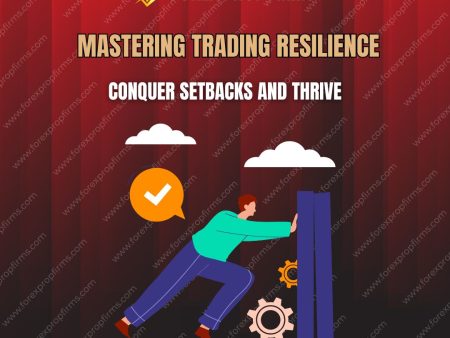
Mastering Your Mind Overcoming Trading Biases and Emotions
In the fast-paced world of trading, emotions, and cognitive biases can significantly impact decision-making. To become a successful trader, it’s crucial to recognize and overcome these challenges. This blog will explore common trading biases, the effects of emotions on trading, and strategies to maintain discipline and control.
Understanding Common Trading Biases
Trading biases are irrational beliefs or tendencies that influence traders’ decisions. Understanding these biases is the first step toward overcoming them.
- Confirmation Bias: This occurs when traders seek out information that confirms their existing beliefs while ignoring evidence to the contrary. It can lead to poor decision-making as traders may hold onto losing positions longer than necessary.
- Loss Aversion: This bias refers to the tendency to prefer avoiding losses over acquiring gains. Traders may hesitate to close a losing trade, hoping the market will turn in their favor, which can exacerbate losses.
- Overconfidence: Overconfident traders may take on more risk than they can handle, believing they have better control over outcomes than they actually do.
- Fear of Missing Out (FOMO): This bias drives traders to enter trades impulsively due to the fear of missing out on potential profits, often leading to poor timing and unnecessary risks.
- Anchoring Bias: Traders may rely too heavily on the first piece of information they receive (the anchor) when making decisions, even if new data contradicts it.
The Impact of Emotions on Trading
Emotions play a significant role in trading and can lead to irrational decisions if not properly managed. Understanding the emotional triggers and their impact on trading is crucial.
- Fear: Fear of loss can lead traders to exit trades prematurely or avoid taking opportunities, missing out on potential profits.
- Greed: The desire for more can push traders to take excessive risks, often leading to significant losses.
- Regret: Regret over past decisions can cloud judgment and lead to revenge trading, where traders attempt to recover losses impulsively.
- Euphoria: After a series of successful trades, euphoria can cause overconfidence, leading to riskier trades and potential losses.
Strategies for Overcoming Biases
Overcoming trading biases requires self-awareness, discipline, and the application of specific strategies designed to counteract these cognitive pitfalls.
- Mindfulness Techniques: Practicing mindfulness can help traders stay present and make decisions based on current market conditions rather than emotional impulses.
- Diversification: Diversifying investments can reduce the impact of any one bias on your overall portfolio, helping to mitigate risk.
- Setting Clear Rules: Establishing strict trading rules, such as predetermined entry and exit points, can help traders avoid decisions driven by biases.
- Regular Reflection: Reviewing past trades and reflecting on decisions can help identify recurring biases and develop strategies to overcome them.
Developing Emotional Intelligence
Emotional intelligence is the ability to recognize and manage your emotions effectively. Developing this skill is key to overcoming emotional trading.
- Self-Awareness: Being aware of your emotional state while trading can help you avoid impulsive decisions.
- Self-Regulation: Learning to control your emotional responses to market events can prevent rash decisions that may lead to losses.
- Motivation: Staying motivated and focused on long-term goals can help you maintain discipline, even in the face of market volatility.
- Empathy: Understanding the emotions and actions of other market participants can give you a competitive edge, helping you anticipate market movements.
- Social Skills: Building strong relationships with other traders can provide valuable insights and support, helping you stay grounded and objective.
Building a Trading Journal
A trading journal is an essential tool for tracking progress, identifying patterns, and overcoming trading biases. Here’s how to create and use one effectively:
- Record All Trades: Document every trade, including entry and exit points, the reasoning behind the trade, and the outcome.
- Analyze Emotional States: Note how you felt before, during, and after each trade. This can help identify emotional triggers and patterns.
- Review Regularly: Regularly review your journal to identify recurring biases and emotional reactions that may be influencing your decisions.
- Set Goals: Use your journal to set specific, measurable goals for improving your trading discipline and reducing biases.
Seeking Professional Help
For traders struggling to overcome deep-seated biases or emotional challenges, professional help may be beneficial.
- Therapy: Cognitive-behavioral therapy (CBT) can help traders identify and change negative thought patterns that contribute to biases and emotional trading.
- Coaching: Working with a trading coach or mentor can provide personalized guidance and strategies for overcoming specific challenges.
- Support Groups: Joining a community of traders who share similar challenges can offer support, accountability, and new perspectives.
Conclusion
Overcoming trading biases and emotional challenges is essential for long-term success in trading. By understanding common biases, developing emotional intelligence, and employing effective strategies, traders can improve their decision-making and achieve consistent profits. With the right mindset and tools, you can master your mind and trade with confidence and discipline.
Let’s Understand Prop Firms
Looking for the latest Prop Firms updates?
Follow our official social channels and never miss a bit!














 for
for